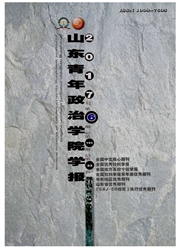

 中文摘要:
中文摘要:
本研究使用二元热情模式探讨运动员的热情、正向情绪与运动员主观幸福感的关系,并检验正向情绪对运动员热情和主观幸福感关系间的中介效果。采用问卷调查法,经受试者同意后,请运动员填写运动热情量表、正向情绪量表和主观幸福感量表。研究结果发现:调和式热情、强迫式热情、正向情绪和主观幸福感之间都呈正相关,二元热情之间也呈高度的正相关;运动员的两种热情都可以正向预测正向情绪和幸福感。由此得到结论:两种热情形式都能让运动员在运动过程中经验到正向情绪,并进一步提升运动员的主观幸福感。
 英文摘要:
英文摘要:
The present research used the dualistic model of passion to examine the relationship between passion, positive emotion and subjective well-being from athlete’s perspectives. Moreover, in this study we were interested in understanding the mediating role of positive emotion between athlete’s passion and subjective well-being. Results are in two aspects. First, there were positive correlation among harmonious passion, obsessive passion, positive emotion and subjective well-being, and a higher correlation was found between two types of passion. Second, both types of passion can positively predict positive emotion and subjective well-being independently; furthermore, the effects between passion and subjective well-being were fully mediated by positive e-motion. Most findings coincide with previous researches, whereas the positive relationship between obsessive passion and positive emotion was different. Since the two types of passion are highly correlated, it is no surprise that obsessive passion may positively predict the positive emotion and subjective well-being. However, further testing is needed for the findings. It is concluded that two types of passion are able to help athletes experience positive emotion within a sport context, and further enhance subjective well-being of athletes.
 同期刊论文项目
同期刊论文项目
 同项目期刊论文
同项目期刊论文
 期刊信息
期刊信息
